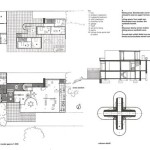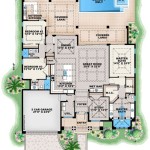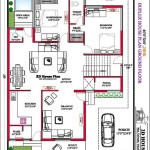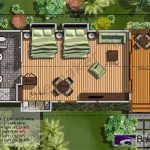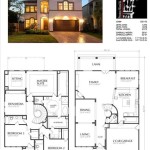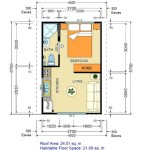Floor Plans of House Designs: Essential Aspects to Consider
When embarking on the journey of designing or renovating a home, the floor plan lays the foundation for the entire project. It is a blueprint that outlines the layout of the house, including the placement of rooms, walls, doors, and windows. Understanding the essential aspects of floor plans is crucial for creating a functional and aesthetically pleasing living space.
### Functional LayoutThe primary function of a floor plan is to establish a functional layout that meets the needs of the occupants. This involves considering the flow of movement between rooms, the designated use of each space, and how the overall design will support daily life. Careful planning ensures that the house is both comfortable and convenient to live in.
### Room PlacementThe placement of rooms is a key aspect of floor plan design. The living room, dining room, and kitchen should be situated in close proximity to each other to facilitate social interaction and entertaining guests. Bedrooms, bathrooms, and laundry areas should be located in more private spaces. The garage and entrance should be easily accessible from the exterior.
### Room Size and ShapeThe size and shape of rooms play a significant role in the functionality and aesthetics of the house. Rooms should be of adequate size to accommodate the intended furniture and activities. The shape of rooms can impact the flow of movement and create visual interest. Irregularly shaped rooms can add character and personality to the design.
### Natural LightingNatural lighting is essential for creating a bright and inviting atmosphere in a home. The placement of windows and doors should be carefully considered to maximize the amount of natural light entering each room. Skylights and solar tubes can also be incorporated to enhance natural illumination.
### Storage and ClosetsAdequate storage and closet space are crucial for maintaining a well-organized home. Floor plans should include designated spaces for storage, such as built-in closets, pantries, and linen cupboards. Closets should be strategically placed to provide easy access to necessary items.
### Scalability and FlexibilityLife circumstances can change over time, and it is important to consider the scalability and flexibility of a floor plan. The design should allow for potential future additions or modifications, such as expanding a bedroom or adding an extra bathroom. Flexible spaces, such as a den or bonus room, can be used for multiple purposes depending on changing needs.
### Style and AestheticsWhile functionality is paramount, the aesthetic appeal of a floor plan cannot be ignored. The layout should complement the overall architectural style of the house. The use of different ceiling heights, moldings, and architectural details can add visual interest and create a sense of luxury.
### ConclusionCreating a floor plan of a house design is a complex and multifaceted process. By considering the essential aspects outlined above, architects and homeowners can develop functional, comfortable, and aesthetically pleasing living spaces. A well-planned floor plan serves as the foundation for a successful home design that will provide years of enjoyment and satisfaction.

House Plans How To Design Your Home Plan

House Plans How To Design Your Home Plan

Small House Design Shd 2024007 Pinoy Eplans One Y Bungalow Plans Floor

House Plans Home Floor Architecturalhouseplans Com

Floor Plans Types Symbols Examples

Floor Plan Creator And Designer Free Easy App

28 Modern House Designs Floor Plans And Small Ideas

Top 5 Modern House Plans With Photos Floor Archid

House Plan Maywood Sater Design Collection

Truoba 723 2 Floor House Plan

